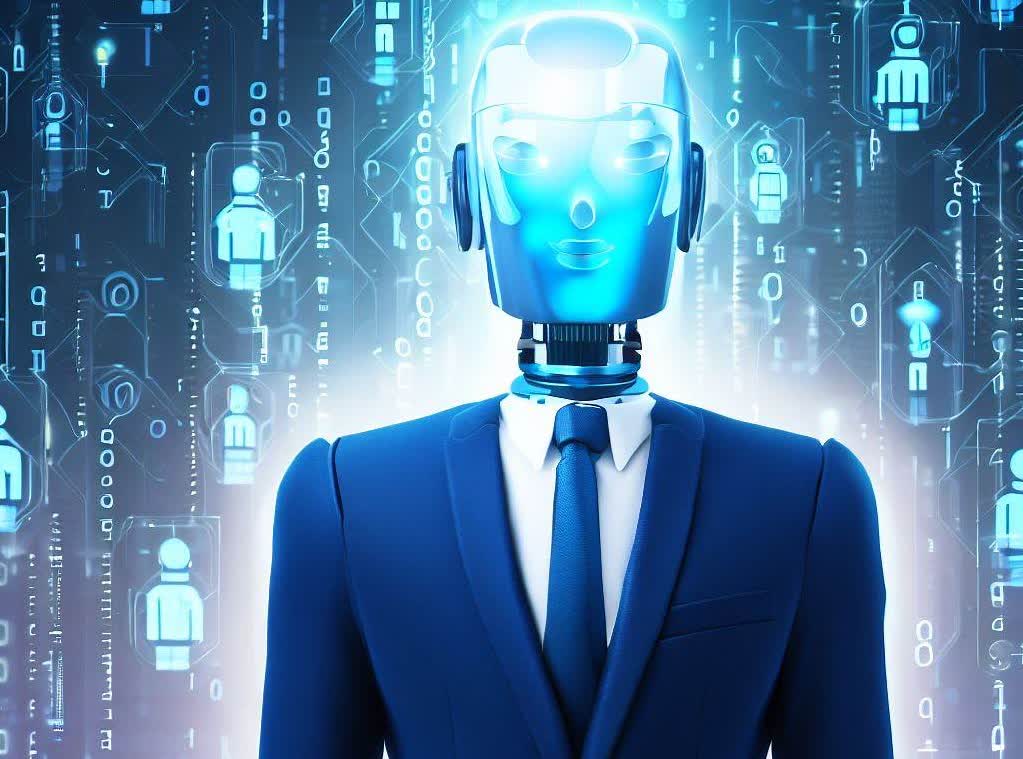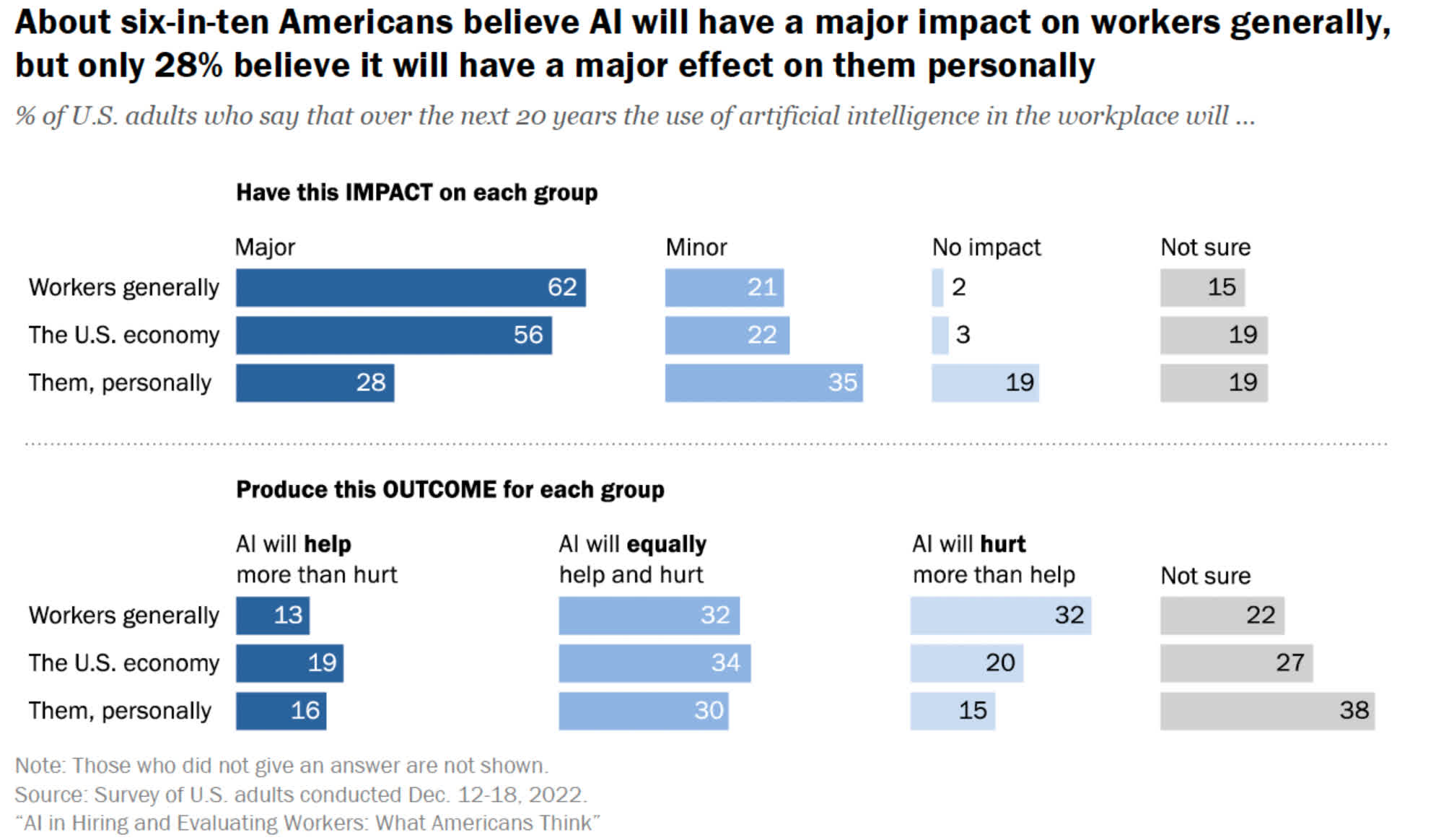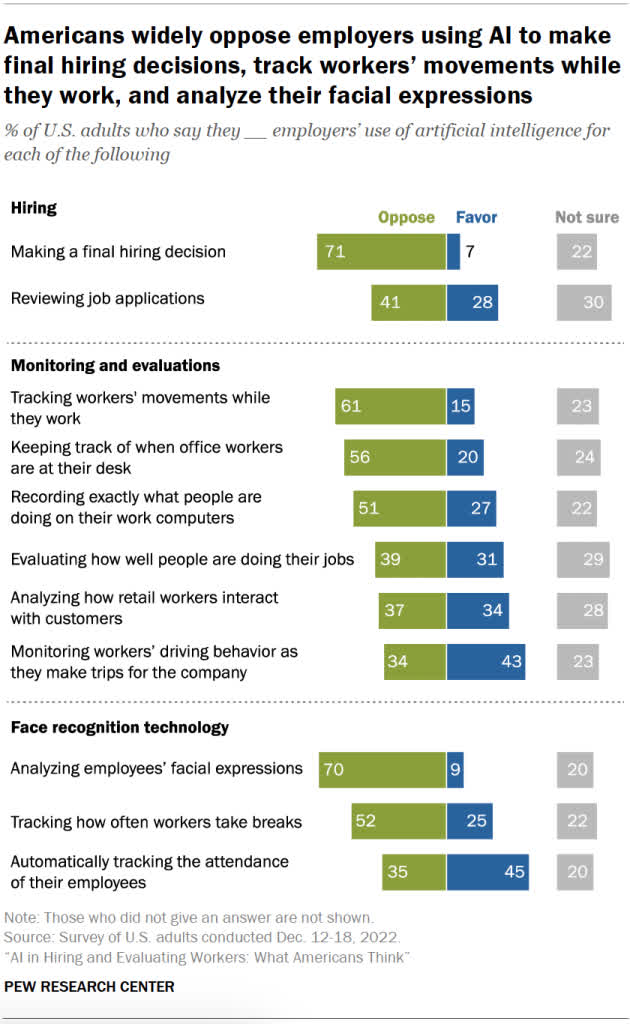A hot potato: Not only could AI take your job, but it might also decide whether you get another one. More companies are using the technology for hiring and other workplace decisions, but almost two-thirds of Americans would not want to apply for a position with an employer who uses AI to make hiring choices. And even more are opposed to AI making the final hiring decision.
The recent meteoric rise of generative AIs such as ChatGPT looks set to revolutionize the technology landscape. But for all the good it can bring, automation always comes at the cost of jobs. Research by bank Goldman Sachs claims these systems could replace a quarter of work tasks in the US and Europe, the equivalent of 300 million jobs.
Companies aren't just using AI to replace human workers - as the creatives at one company found out – it's also being used extensively for recruitment and other HR-related purposes.
But, much like talking to someone who's using generative AI, most people don't want an artificial intelligence being part of the hiring process. A recent Pew Research study that surveyed 11,004 Americans found that 66% would not want to apply for a job with an employer who engaged in this practice. Just 32% said they would apply, while the rest were unsure. Even more participants, 71%, were opposed to AI making the final hiring decision.
As is usually the case when companies start incorporating AI in their workflow, most claim using it in the hiring process speeds everything up, such as screening and contacting candidates, giving human HR workers – those who haven't been replaced – more time for other tasks.
Elsewhere in the survey, 62% of people believe AI will have a major impact on workers over the next 20 years, but just 28% think it will affect them personally. Moreover, only 13% believe AI will help more than hurt workers, while 32% think it will equally hurt and help, and another 32% say it will hurt more than help.
Looking at how AI can be used for monitoring & evaluations and facial recognition, the only two areas people were in favor of it being used were monitoring workers' driving behavior as they make trips for the company (43% in favor) and automatically tracking the attendance of employees (45% in favor).
The results show most participants are against employers using AI, especially when it's used to decide who gets hired, fired, or promoted. One of the fears people have is that AI can be biased, which we've seen before.
"AI as it is usually applied today looks for specific words or qualifications that often miss the whole picture," one respondent told Pew. AI can also allow "structural biases based on race or socioeconomic status to persist unchallenged," he added.
Others pointed out that AI would not take into account factors that don't appear on a job application.
Conversely, the minority who favored AI said it wouldn't have the biases found in some humans, such as ageism, and it could look past non-traditional work histories.
https://www.techspot.com/news/98450-most-people-dont-want-company-ai-do-hiring.html


